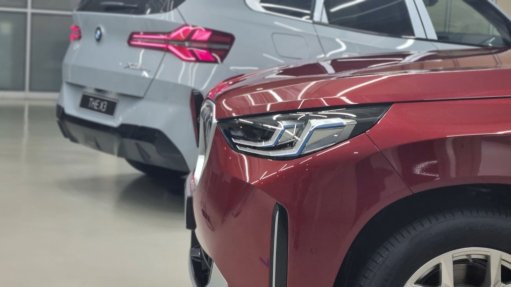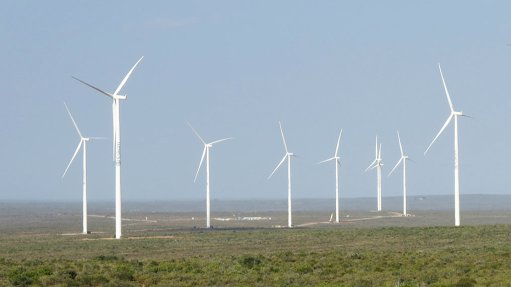Slow train coming?
On March 20, Moody’s Investors Service downgraded the ratings of the Development Bank of Southern Africa and the Industrial Development Corporation, two of South Africa’s State-owned enterprises (SOEs). Eighty-six days later, on June 25, the ratings agency announced another downgrade of these two SOEs.
As reported by Business Day on June 29, Moody’s holds the view that it is unlikely that government will be able to provide the necessary support for these SOEs should they run into trouble. It stated that government “may not always be in a position to provide timely and adequate support” for its SOEs – not just these two.
Interestingly, on the same day, Engineering News reported that another of the country’s 131 SOEs, Airports Company South Africa “notes” Moody’s recent decision to downgrade its rating and to change its outlook from ‘under review’ to ‘negative’. Unfortunately, the negative outlook is not out of sync with Moody’s perception of South Africa’s sovereign rating.
Surprisingly, the only SOE mentioned in Finance Minister Tito Mboweni’s Supplementary Budget on June 24 was the Land and Agriculture Development Bank, for which government will provide R3-billion in new equity funding. This begs the question: Who, other than government – South African taxpayers, actually – would be willing to invest in any of the SOEs?
This brings us to two gates, as the Finance Minister put it in his Supplementary Budget speech. There is an apparent choice between a wide gate and a narrow one. He explained: “The wide gate is a passive country that lets circumstances overwhelm it. If we remain passive, economic growth will stagnate. Our debt will spiral inexorably upwards and debt- service costs will crowd out public spending on education and other policy priorities. We already spend as much on debt-service cost as we do on health in this financial year. Eventually, the gains of the democratic era would be lost. “The wide gate opens to a path of bankruptcy. A sovereign debt crisis is when a country can no longer pay back the interest or principal on its borrowings. We are still some way from that. But if we do not act now, we will shortly get there. “The results are devastating. Interest rates skyrocket. Spending has to stop. Inflation takes hold and people grow much poorer. This is what happened to Germany in the 1920s, to Argentina and to Zimbabwe in the early 2000s, and to Greece in the past few years. Argentina had its ships attached. Greek civil servants and pensioners had their salaries and pensions slashed. In short, it is doom and despair. We have been there before: in its closing days, the apartheid government had to declare a debt standstill. We firmly reject this gate!
“The narrow gate, on the other hand, opens to a path of prosperity. Through this gate, we reduce our reliance on borrowing. We feed the hungry. We look after the sick. We educate our people. We build for the future. We spend with wisdom, and we jail those who loot. The narrow gate is an active approach – a nation that takes active steps to rapidly stabilise debt and grow the economy. By doing this, we will create jobs, reduce the cost of doing business and build a competitive economy.”
This gate analogy reminded me of the lyrics in Bob Dylan’s song, When He Returns: “Truth is an arrow and the gate is narrow that it passes through.” It is on his album, Slow Train Coming.
In keeping with the multiplicity of roads, and gates, why not also of trains, and then why not add a runaway train in the mix? Soul Asylum sings of a runaway train: “Runaway train never going back; Wrong way on a one-way track; Seems like I should be getting somewhere; Somehow I’m neither here nor there . . . Runaway but it always seems the same”.
Article Enquiry
Email Article
Save Article
Feedback
To advertise email advertising@creamermedia.co.za or click here
Press Office
Announcements
What's On
Subscribe to improve your user experience...
Option 1 (equivalent of R125 a month):
Receive a weekly copy of Creamer Media's Engineering News & Mining Weekly magazine
(print copy for those in South Africa and e-magazine for those outside of South Africa)
Receive daily email newsletters
Access to full search results
Access archive of magazine back copies
Access to Projects in Progress
Access to ONE Research Report of your choice in PDF format
Option 2 (equivalent of R375 a month):
All benefits from Option 1
PLUS
Access to Creamer Media's Research Channel Africa for ALL Research Reports, in PDF format, on various industrial and mining sectors
including Electricity; Water; Energy Transition; Hydrogen; Roads, Rail and Ports; Coal; Gold; Platinum; Battery Metals; etc.
Already a subscriber?
Forgotten your password?
Receive weekly copy of Creamer Media's Engineering News & Mining Weekly magazine (print copy for those in South Africa and e-magazine for those outside of South Africa)
➕
Recieve daily email newsletters
➕
Access to full search results
➕
Access archive of magazine back copies
➕
Access to Projects in Progress
➕
Access to ONE Research Report of your choice in PDF format
RESEARCH CHANNEL AFRICA
R4500 (equivalent of R375 a month)
SUBSCRIBEAll benefits from Option 1
➕
Access to Creamer Media's Research Channel Africa for ALL Research Reports on various industrial and mining sectors, in PDF format, including on:
Electricity
➕
Water
➕
Energy Transition
➕
Hydrogen
➕
Roads, Rail and Ports
➕
Coal
➕
Gold
➕
Platinum
➕
Battery Metals
➕
etc.
Receive all benefits from Option 1 or Option 2 delivered to numerous people at your company
➕
Multiple User names and Passwords for simultaneous log-ins
➕
Intranet integration access to all in your organisation

















